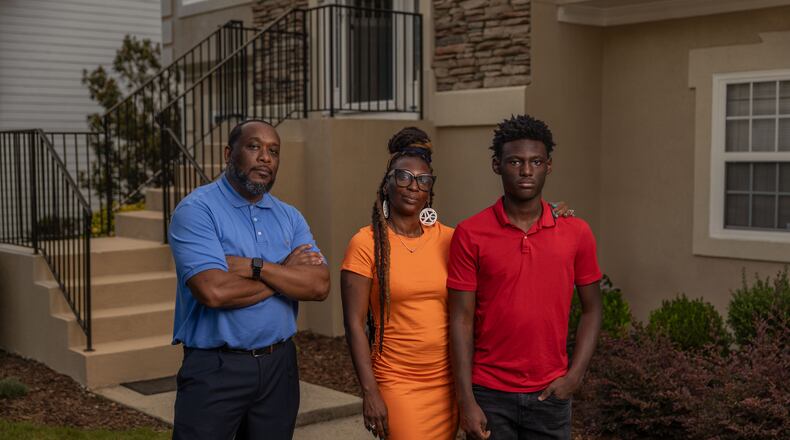The U.S. Supreme Court will hear arguments Tuesday from an Atlanta family seeking to hold the federal government liable for trauma from a mistaken predawn raid on their house by armed FBI agents.
A decision in the case could have wide implications for any allegations of wrongful actions by federal employees and law enforcement officers in particular.
Georgia courts, including the 11th U.S. Circuit Court of Appeals — the federal appellate court that sets the legal standard for Georgia, Florida and Alabama — have found in many cases that law enforcement officers and agents can’t be held liable for what happens during the course of their work.
The U.S. Supreme Court said when it decided to take up the Atlanta family’s case that the 11th Circuit’s ruling in it differs from what other federal appeals courts have found in similar cases. The high court is set to consider and possibly resolve those differences, ending what’s called a circuit split over the issue.
At dispute in the Atlanta family’s case is whether the agent who led the raid has immunity from liability, and if claims brought against the government under the Federal Tort Claims Act are barred by an exception of that law and a clause of the U.S. Constitution.
Trina Martin, whose Atlanta home was raided just before 5 a.m. on Oct. 18, 2017, told The Atlanta Journal-Constitution she’s hopeful the Supreme Court will rule in her favor.
“It’s a major milestone for me and anyone else that has experienced anything like this or possibly will in the future,” Martin said in January when the Supreme Court decided to take the case.
Credit: Courtesy Institute for Justice
Credit: Courtesy Institute for Justice
Martin, her then-partner Toi Cliatt and her son, Gabe Watson, said they were startled awake when a six-agent SWAT team busted down their front door, set off a flashbang grenade in their home entryway and pointed guns at them before realizing they had the wrong address.
The target of the raid was an alleged violent gang member reportedly living a block away, case records show. Martin, Cliatt and Gabe said they got an apology from the FBI agent who led the raid but were left with lasting trauma. Gabe was 7 at the time.
Credit: Courtesy Institute for Justice
Credit: Courtesy Institute for Justice
The trio’s 2019 lawsuit against the U.S. and the lead agent was thrown out by a federal judge in Atlanta. The ruling was upheld by the 11th Circuit.
In case filings, the federal government asked the Supreme Court to reject the family’s attempt to revive the case. It said the lead FBI agent had relied on a GPS device to find the target home in the dark and later told Martin and Cliatt the FBI would cover the damage to their property.
Seven members of Congress, including Sen. Raphael Warnock, D-Ga., and Rep. Nikema Williams, D-Ga., wrote to the Supreme Court in support of the Atlanta family’s case.
Credit: Courtesy Institute for Justice
Credit: Courtesy Institute for Justice
Lawyers for the family say Congress amended the Federal Tort Claims Act in the 1970s specifically to allow claims against the federal government and its employees in similar cases. They say the 11th Circuit wrongly expanded protection for government officials when their professional actions are based on their own decisions.
The 11th Circuit also held that the family’s claims are barred by the Supremacy Clause of the U.S. Constitution, which protects the execution of federal law. In other states, where the guiding federal appeals courts have ruled differently, cases like the Atlanta family’s have succeeded.
About the Author
Keep Reading
The Latest
Featured







